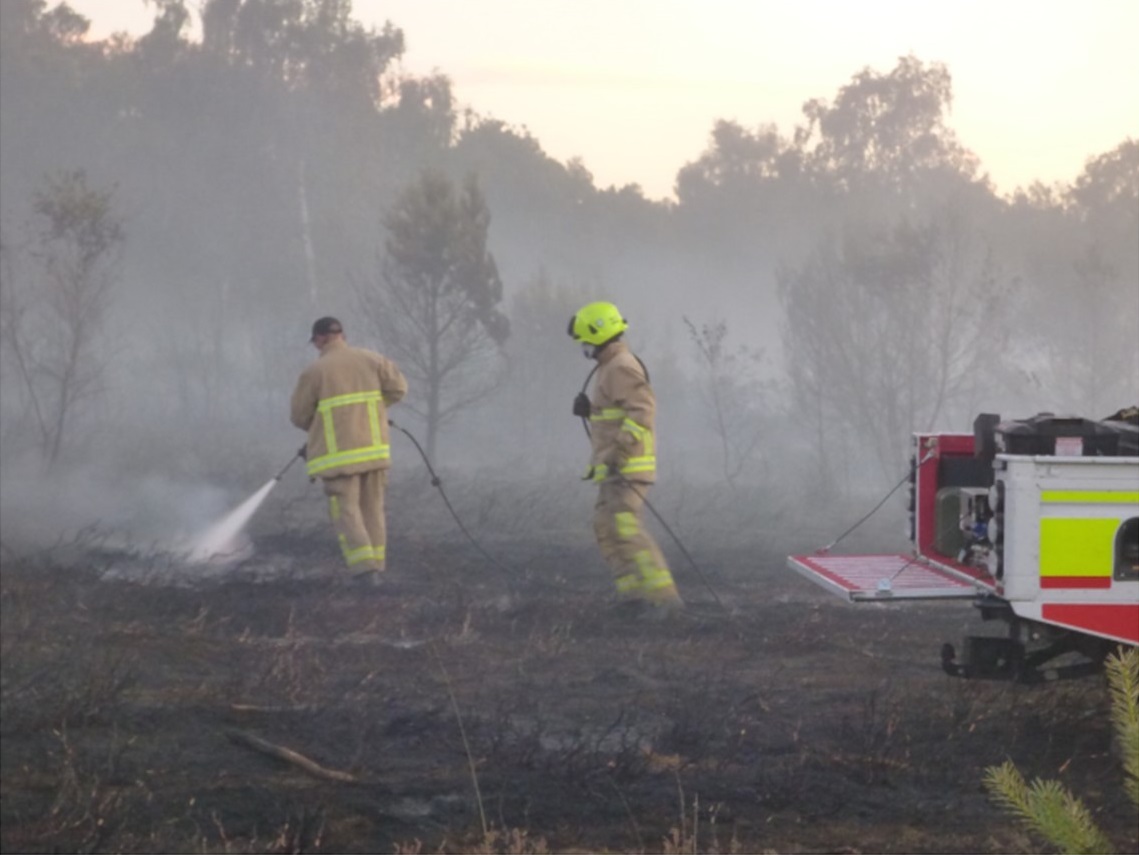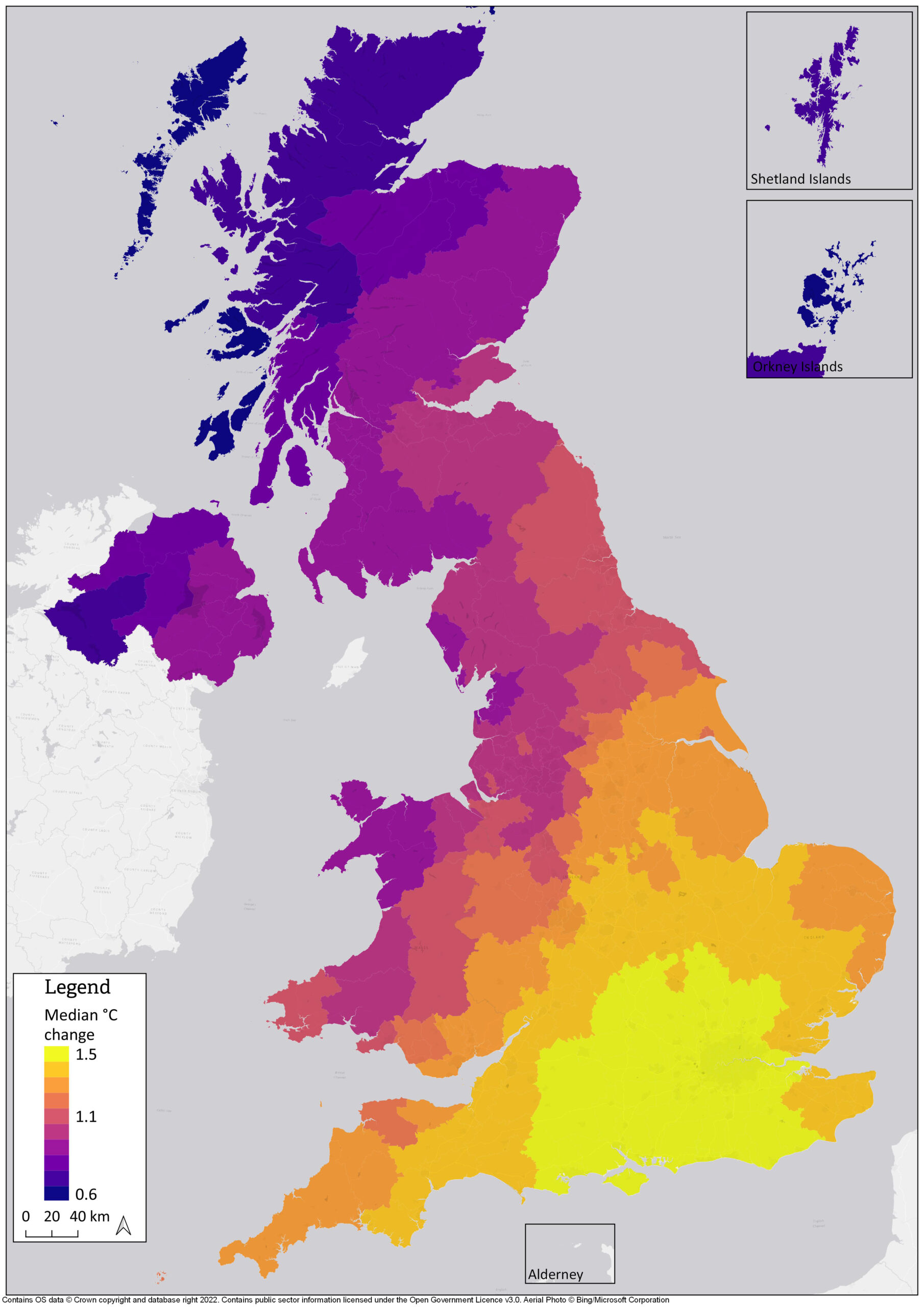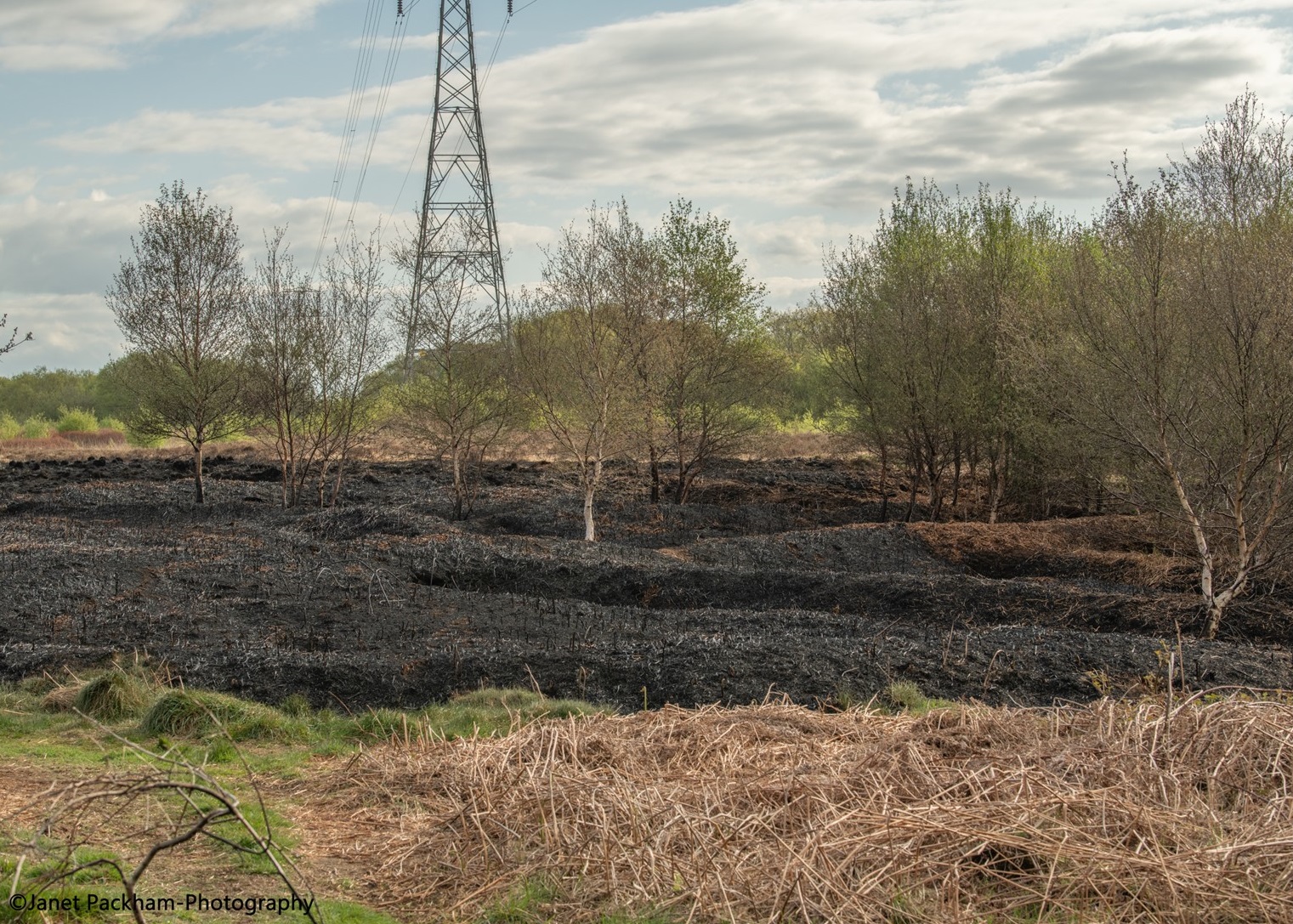 Abraham Lincoln
If given the truth, the people can be depended upon to meet any national crisis...
Abraham Lincoln
If given the truth, the people can be depended upon to meet any national crisis...
 Guildford news...
for Guildford people, brought to you by Guildford reporters - Guildford's own news service
Guildford news...
for Guildford people, brought to you by Guildford reporters - Guildford's own news service
Wildfire Risk ‘Very High’ In Surrey As Global Warming Gets Local
Published on: 11 Jul, 2022
Updated on: 14 Jul, 2022
“Take a picnic rather than a barbecue,” urges Surrey Wildlife Trust in the wake of recent heathland fires.
And as Guildford basks in 30°C heat, the UK’s Wildlife Trusts Changing Nature report (June 2022) reveals Surrey’s rare heathland faces a “very high” risk of wildfires on at least 30 days per year by 2050, and with Surrey temperatures estimated to rise more than 1.5°C.

Fires on Surrey healths are likely to increase states Surrey Wildlife Trust. Here firefighters put out a blaze on Whitmoor Common in 2018 (see Dragon article).
The report is the trust’s first climate risk assessment and it reveals how global heating is affecting UK wildlife now and likely to the future. It states: “We can no longer focus only on restoring nature to a historical state. Change is inevitable.”
The research finds that by the 2050s, under a future warming trajectory that reaches 3°C warming by 2100.
It is estimated nature reserves looked after by Surrey Wildlife Trust will see more than 1.5°C increases on hot summer days by 2050.
55% of UK reserves will see river flows drop by more than 30% during low flow.
Surrey is one of the higher fire risk areas having half of the UK’s such reserves looked after by wildlife trusts.

The Wildlife Trust’s Changing Nature report shows average temperatures in Surrey and most of the south-east will have increases in the summer of more than 1.5°C.
Surrey Wildlife Trust estimates that last week’s blaze on Pirbright Ranges affected more than 500 hectares of healthland.
It follows fires on Whitmoor Common, Ash Ranges, Chobham Common and Ockham Common in recent years, all valuable sites for nature, says Surrey Wildlife Trust.
While no one incident can be directly attributed to global heating, climate warmings and changes in weather patterns appear to increase the likelihood and frequency of events such as wildfires, floods and droughts.
The director of reserves management at Surrey Wildlife Trust, James Herd, said: “Please dispose of all litter properly and any smoking equipment safely, remind children of the serious risk of fire, and take a picnic rather than a barbecue.”
The Wildlife Trusts wants to see increased effort from governments, business and other landowners on climate adaptation, including greater investment in nature-based solutions and a specific focus on resilience.
The director of climate change and evidence for The Wildlife Trusts, Kathryn Brown, said: “Climate change is contributing more and more to nature’s decline with devastating consequences for people and wildlife.
“We need people to join us in creating a new national vision for our landscapes because we can no longer focus only on restoring nature to a historical state. Change is inevitable.
“A concerted effort is required to create more space for nature everywhere, enabling natural ecosystems to function properly, creating habitats for wildlife, and building diversity and flexibility for the future.”
Surrey Wildlife Trust says the findings come at a time when the UK is already one of the most nature-depleted countries in the world.
It points out that wildfires have destroyed valuable and rare habitats, affecting the availability of food for wildlife, and costing huge amounts of time and money.
Flooding has impacted on wildlife too, damaged infrastructure, along with increased river pollution, while droughts have lowered the water table on wetland nature reserves.These have dried out chalk streams and peat bogs and concentrated pollution in rivers.
Recent Articles
- Guildford Institute’s Crowdfunding Project for Accessible Toilet in its New Community and Wellbeing Centre
- Letter: Guildford – Another Opportunity Missed?
- Letter: GBC’s Corporate Strategy – Where Is the Ambition?
- My Memories of John Mayall at a Ground-breaking Gig in Guildford Nearly Six Decades Ago
- Westborough HMO Plans ‘Losing the Heart of the Street’ Says Resident
- College Invests to Boost Surrey’s Economy and Close Digital Skills Gap
- Community Lottery Brings Big Wins for Local Charities
- GBC Housing Plan Promises ‘A Vibrant Urban Neighbourhood’ Near Town Centre
- Hospital Pillows ‘Shortage’ at the Royal Surrey
- Updated: Caravans Set Up Camp at Ash Manor School


Search in Site
Media Gallery
Dragon Interview: Local Artist Leaves Her Mark At One of England’s Most Historic Buildings
January 21, 2023 / No Comment / Read MoreDragon Interview: Lib Dem Planning Chair: ‘Current Policy Doesn’t Work for Local People’
January 19, 2023 / No Comment / Read MoreA3 Tunnel in Guildford ‘Necessary’ for New Homes, Says Guildford’s MP
January 10, 2023 / No Comment / Read More‘Madness’ for London Road Scheme to Go Ahead Against ‘Huge Opposition’, Says SCC Leader
January 6, 2023 / No Comment / Read MoreCouncillor’s Son Starts Campaign for More Consultation on North Street Plan
December 30, 2022 / No Comment / Read MoreCounty Council Climbs Down Over London Road Works – Further ‘Engagement’ Period Announced
December 14, 2022 / No Comment / Read MoreDragon Interview: GBC Reaction to the Government’s Expected Decision to Relax Housing Targets
December 7, 2022 / No Comment / Read MoreHow Can Our Town Centre Businesses Recover? Watch the Shop Front Debate
May 18, 2020 / No Comment / Read More










Recent Comments